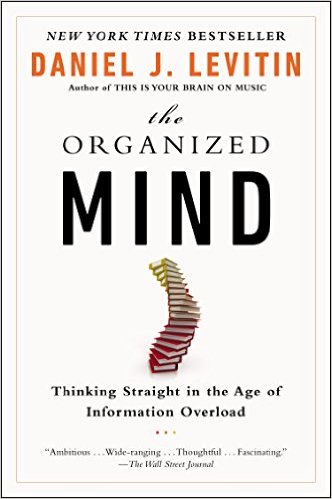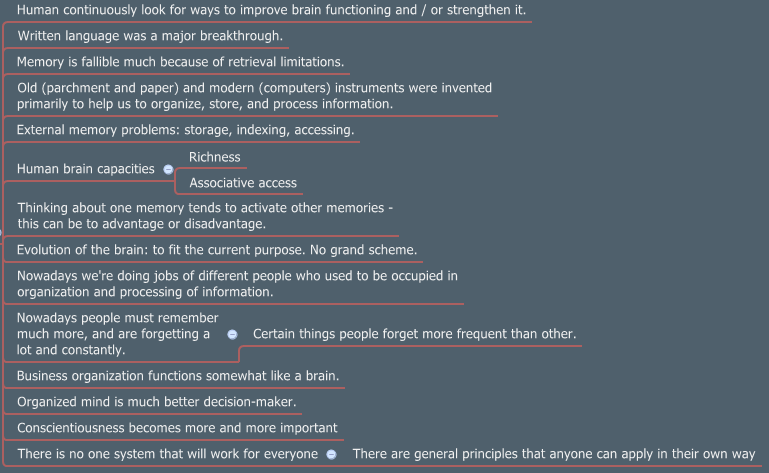Context Driven Mind
These are the points I captured while reading Introduction to the book “The Organized Mind: Thinking Straight in the Age of Information Overload” by Dr. Daniel J. Levitin. I put my points and cross-references next to them.
- Human continuously look for ways to improve brain functioning and / or strengthen it.
|| This is especially true for professions with intense demand to thinking and learning. Like testing.
- Written language was a major breakthrough.
|| Writing added new communication medium. But also enabled tracking and history perspectives.
|| Note taking and keeping journal is a major professional advantage. It’s also a powerful self-development tool.
- Memory is fallible much because of retrieval limitations.
|| “Fallibility of Memory” episode from Sceptoid would be a perfect illustration.. Wait! I haven’t blogged about it yet!? Another cross-reference is coming..
- Old (parchment and paper) and modern (computers) instruments were invented primarily to help us to organize, store, and process information.
|| I’m worried that the way technologies develop now it contributes to degradation of people skills in study, learning, remembering, and organizing the information.
|| Moreover, it negatively affects professional skills. No one heard of copy-paste programming 20 years ago.
- External memory problems: storage, indexing, accessing.
|| And querying. How do I know what I don’t know?
- Human brain capacities
- Richness
- Associative access
|| I’d also highlight abilities to create new information and meta-information – through analysis, synthesis, and conclusions
- Thinking about one memory tends to activate other memories – this can be to advantage or disadvantage.
|| When we had many similar experiences they tend to get mixed-up in memory..
|| I’ve written hundreds, maybe thousands, of code snippets, tested hundreds, maybe thousands, of scenarios. When it’s a fresh thing, I remember it very well for long time. When it’s been done in variations many times – my memory gets confused. I rely on my work journal which helps me to distinguish the memories.
- Evolution of the brain: to fit the current purpose. No grand scheme.
|| Software projects evolve much like that. Especially with Agile.
- Nowadays we’re doing jobs of different people who used to be occupied in organization and processing of information.
|| Notably – the mechanical routines may have been taken over but decision-making must be done by humans. Effective and efficient decision-making still requires to be familiar with the subject and the context.
- Nowadays people must remember much more, and are forgetting a lot and constantly.
- Certain things people forget more frequent than other.
|| In IT, we are overloaded by the information streams and barely have time to think through what we heard or read. People either don’t take time for that or get distracted. A lot of job-related information also is so abstract that (subconsciously) it seems not important to remember.
- Business organization functions somewhat like a brain.
- Organized mind is much better decision-maker.
- Conscientiousness becomes more and more important
- There is no one system that will work for everyone
- There are general principles that anyone can apply in their own way
|| There are no best practices. The value of any practice depends on its context.
|| Based on their experiences people work out heuristics and apply them in their own way.




